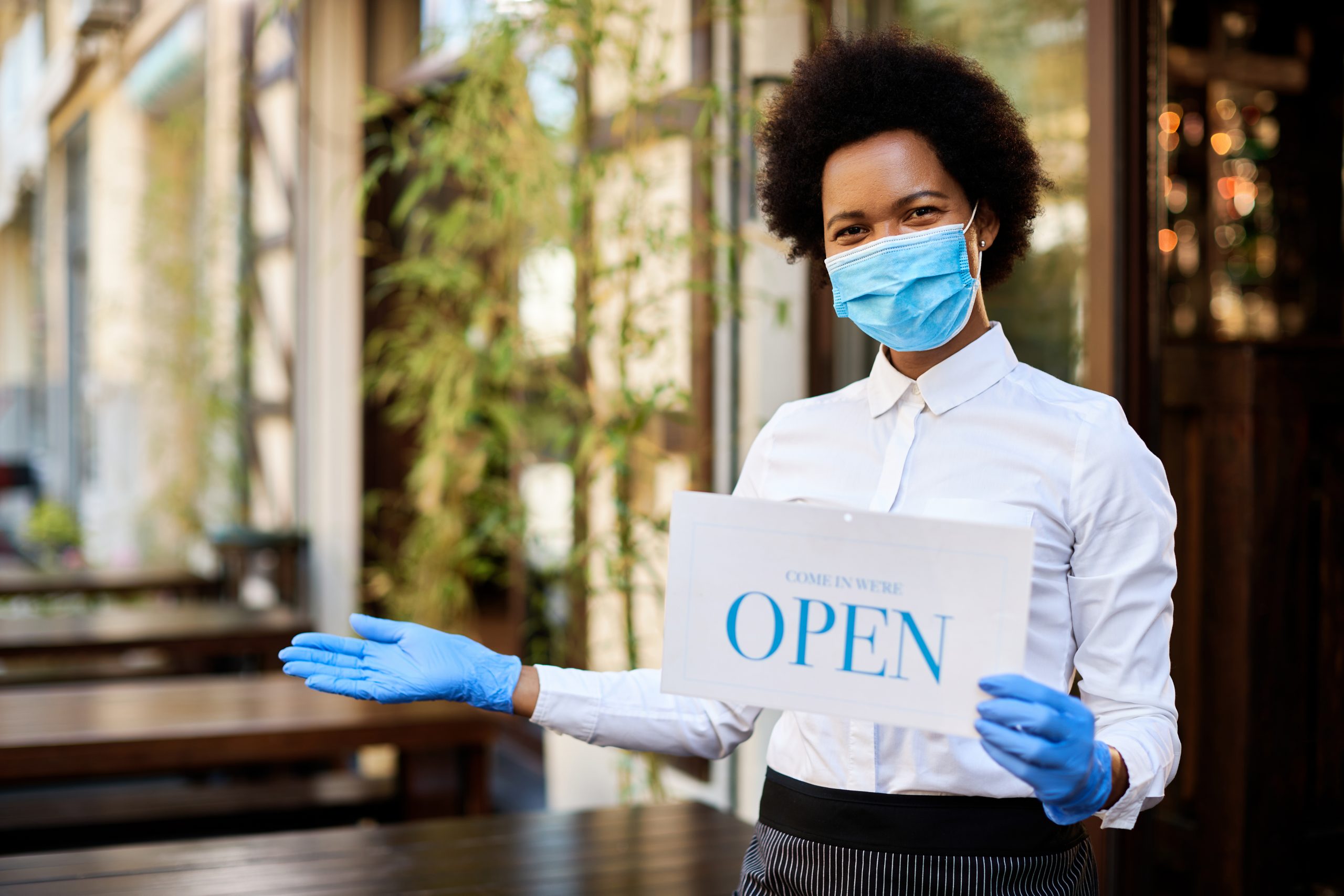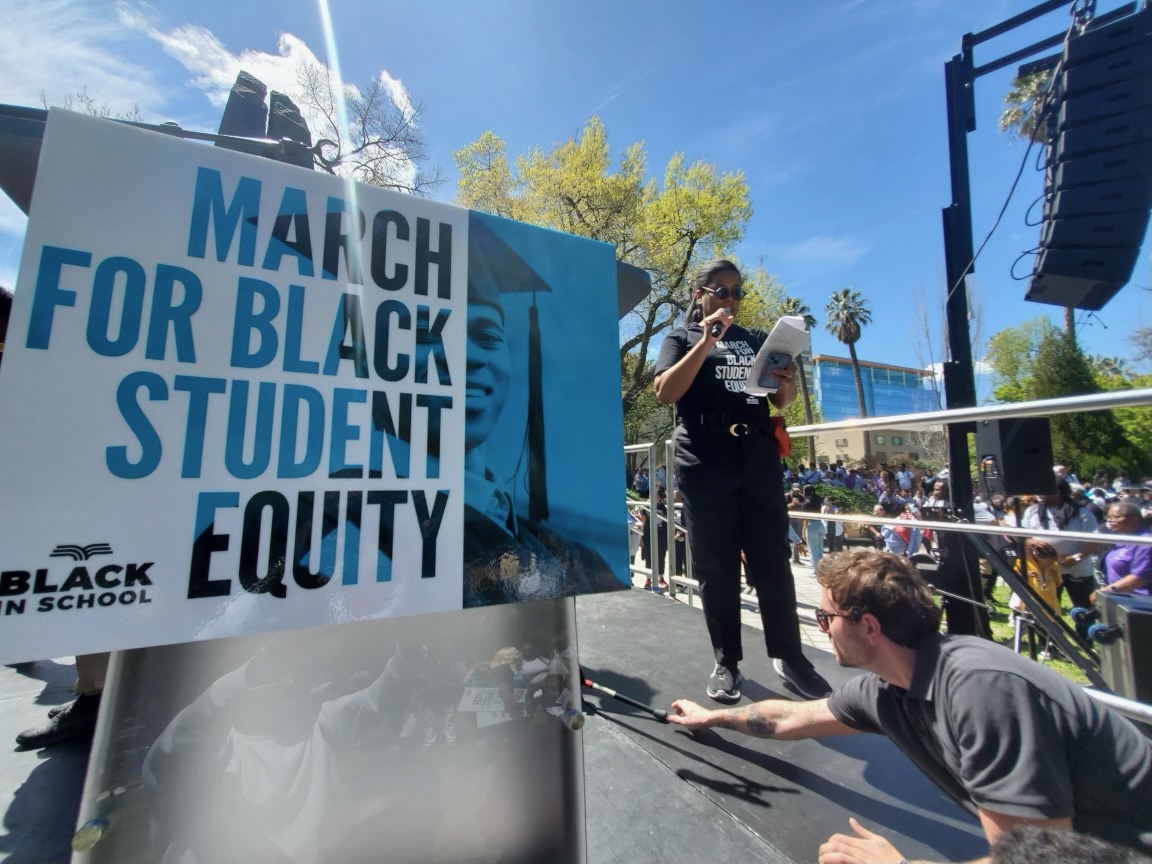
Gov. Newsom Signs Package of Laws Supporting Restaurants, Bars
Aldon Thomas Stiles | California Black Media
California Gov. Gavin Newsom approved a COVID-19 recovery package Friday supporting small hospitality establishments around the state, including restaurants and bars.
Signed at a restaurant in Oakland, the legislative package includes Assembly Bill (AB) 61, Senate Bill (SB) 314 and SB 389 – bills that, among other provisions, extend COVID-19 special permissions like outdoor dining and to-go licenses for alcoholic beverages.
Funding for the package will come out of the governor’s California Comeback Plan which allots $10.2 billion in small business support. So far, the state has spent $4 billion on an emergency grant program and $6.2 billion in tax relief for small businesses.
“These innovative strategies have been a lifeline for hard-hit restaurants during the pandemic and today, we’re keeping the entrepreneurial spirit going so that businesses can continue to create exciting new opportunities and support vibrant neighborhoods across the state,” said Newsom.
The state support comes at a time when many Black-owned small businesses in California, including restaurants, are struggling to recover after being hit hardest by the COVID-19 pandemic. According to UC Berkeley Institute of Governmental Studies (IGS) research, 13 % of Black-owned businesses have had to close down due to the pandemic, compared to 8% of White-owned ones. For Latino-owned businesses that number is even higher at 18 %.
Due to the pandemic, Black businesses have experienced higher revenue loss, more layoffs of employees and less success in getting government funded relief like assistance from the federal Paycheck Protection Program.
“We have all seen the fallout from the pandemic and recession and the effect on BIPOC people and BIPOC small businesses owners has been devastating,” said Tara Lynn Gray, Director of the California Office of the Small Business Advocate. She was speaking at an IGS event last week titled “Diversity and Entrepreneurship in California: An Undergraduate Research Symposium.”
“These are problems that have to be addressed. Access to capital continues to be a challenge,” Gray continued. “We are seeing bankers like Wells Fargo, Citi and JP Morgan Chase making significant investments in BIPOC (Black Indigenous People of Color) small businesses, communities and individuals. That is a trend I would like to continue to see.”
Gray pointed out there are a number of state programs like the Small Business COVID-19 relief funds that prioritize providing relief funding to underserved businesses in the state.
Authored by Assemblymember Jesse Gabriel (D-Encino) and Senator Scott Wiener (D-San Francisco) respectively, AB 61 and SB 314 establish a one-year regulatory grace period for businesses operating under temporary COVID-19 licenses to get permanent expanded licenses, such as outdoor dining authorization.
The one-year grace period will begin once the pandemic emergency declaration has expired.
“Outdoor dining has been a critical lifeline that has helped these establishments keep their doors open during these challenging times,” said Gabriel.
“AB 61 provides important flexibility so that restaurants can safely expand outdoor dining and continue to serve the communities they call home. I applaud Governor Newsom for his thoughtful leadership in protecting both public health and small businesses as we continue to emerge from the COVID-19 pandemic,” Gabriel continued.
Wiener also stressed the importance of pandemic protocols for small businesses in California.
“SB 314 ensures the public can continue to enjoy outdoor dining with alcohol and that our small neighborhood businesses can continue to benefit from this change. The hospitality industry has been hit hard by the pandemic, and it’s important we make changes to modernize our entertainment and hospitality laws to allow them more flexibility and more ways to safely serve customers,” he said.
SB 389 allows restaurants, breweries, wineries and bars that sell food to continue to sell to-go alcoholic beverages through Dec. 31, 2026.
“This is an important step toward helping our restaurants, which have been hit hard by the pandemic,” said Senator Bill Dodd (D-Napa), SB 389’s author.
“It will ensure their recovery, protecting jobs and our economy. I thank Gov. Newsom for supporting this new law,” he continued.




